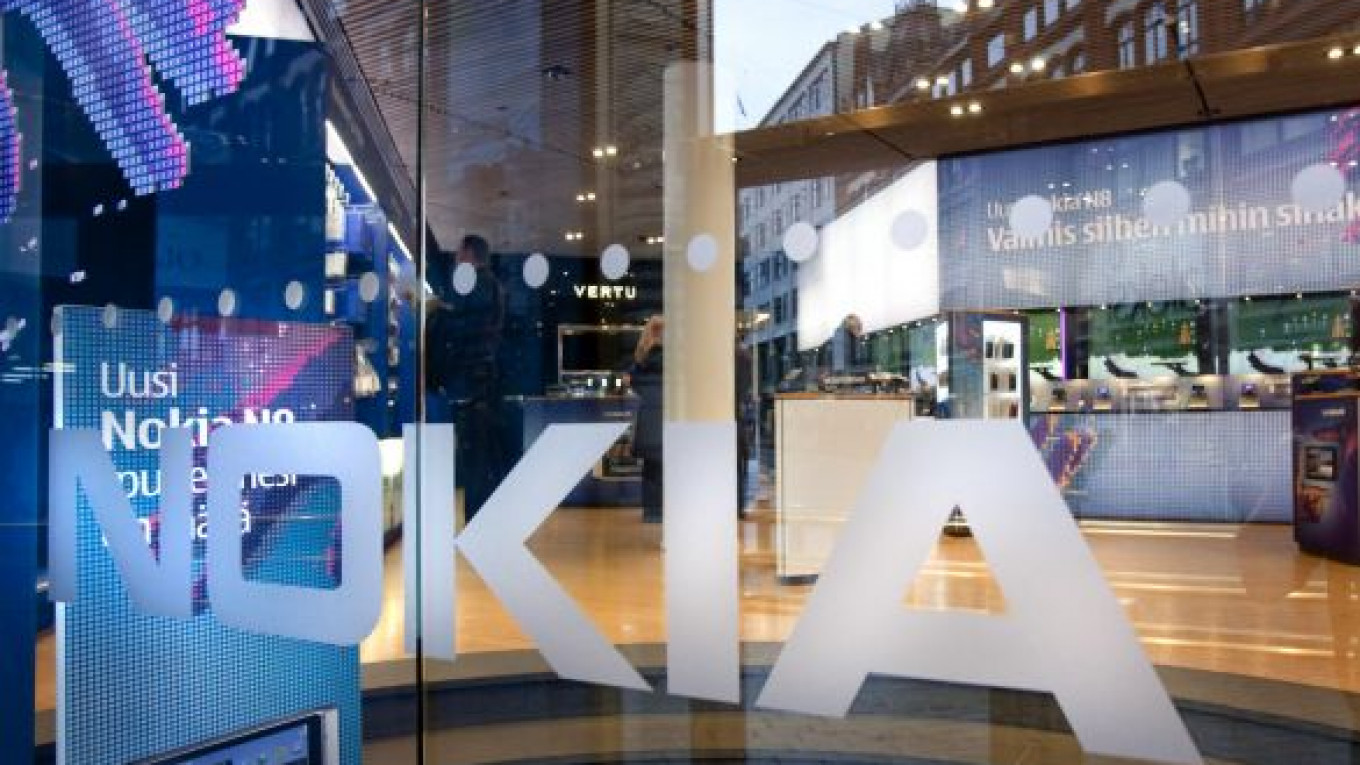Nokia committed on Wednesday to open a research facility at the Skolkovo high-tech innovation center being set up outside of Moscow.
A memorandum of understanding was signed in a ceremony at the Moskva-City business center, with representatives of the Finnish communications company and the Skolkovo Fund taking part.
Esko Aho, Nokia executive vice president and board member, said there that the "knowledge-intensive ecosystem that is being designed at Skolkovo" would suit Nokia's development needs.
Victor Saeijs, CEO of Nokia Eurasia, said Russia will now join Europe, India and China as key sites of Nokia intellectual activity and will be the eighth country where the company has such a center.
The Nokia center at Skolkovo will work in cooperation with leading Russian universities and will employ about 25 technical specialists who will be Russian nationals.
In addition, "Nokia venture capital mechanisms will be extended to Skolkovo resident companies," Aho said, but "the role of venture capital will depend on deal flow, which depends on the success of Skolkovo."
Aho mentioned mobile computing, innovative health care applications, nanotechnology and quantum technology as fields of research at the new center. The center's programmers will also work on development of the new MeeGo Linux-based software platform being jointly released by Nokia and Intel.
Skolkovo Fund president Viktor Vekselberg said they are looking for 10 to 15 foreign partners overall, and that the principle of participation is one of mutual benefit. He said he hopes that the fund will reach an agreement with Intel by the end of the year.
Vekselberg also promised that Skolkovo would begin co-financing projects this year. In the six months since its founding, Skolkovo has become involved in 50 high-tech projects, he said.
Aho declined to specify the size of Nokia's investment in the Skolkovo center, saying only that there would be an "evolutionary process" and that total investment would amount to "double-digit millions of dollars."
"Politicians … expect immediate results," Aho said, but Nokia regards Skolkovo as a long-term project.
Vekselberg said he expects the partnership to "bear fruit in the nearest future."
When asked about the likelihood of drawing emigre scientists back to the country, Vekselberg said Skolkovo "promises something" to scientists, but "it probably takes time for individual people to believe that."
Aho said Nokia's experience in India and China has been that experts return when "there is a high level of skill and talent" in place, but he added that it is "a long process."
Skolkovo managing director for partners Roman Romanovsky said every effort was being made to make the center "comfortable" for scientists.
Vekselberg said his opposition to the construction of skyscrapers at Skolkovo is related to those efforts.
Skyscrapers "make a person feel small," he said, "but a scientist should feel big."
A Message from The Moscow Times:
Dear readers,
We are facing unprecedented challenges. Russia's Prosecutor General's Office has designated The Moscow Times as an "undesirable" organization, criminalizing our work and putting our staff at risk of prosecution. This follows our earlier unjust labeling as a "foreign agent."
These actions are direct attempts to silence independent journalism in Russia. The authorities claim our work "discredits the decisions of the Russian leadership." We see things differently: we strive to provide accurate, unbiased reporting on Russia.
We, the journalists of The Moscow Times, refuse to be silenced. But to continue our work, we need your help.
Your support, no matter how small, makes a world of difference. If you can, please support us monthly starting from just $2. It's quick to set up, and every contribution makes a significant impact.
By supporting The Moscow Times, you're defending open, independent journalism in the face of repression. Thank you for standing with us.
Remind me later.


